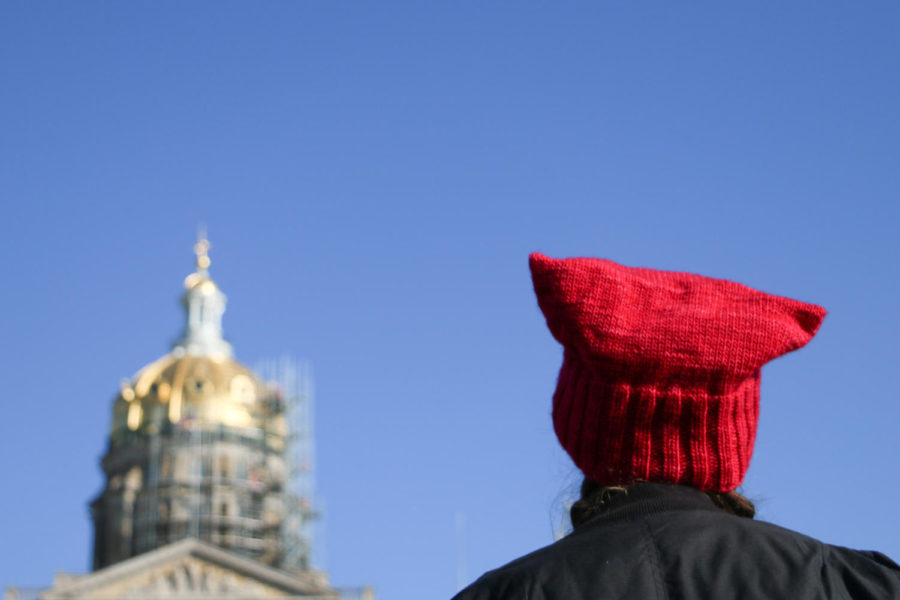Editorial: Gender bias still needs addressed
Emily Blobaum/Iowa State Daily
A woman wearing a red pussy hat listens to speakers at the second annual Women’s March at the State Capitol building in Des Moines on Jan. 20, 2018.
August 23, 2018
Even though Sunday commemorates the 98th anniversary of women earning the right to vote, gender bias still remains a pervasive issue both in the voting booth and on the ballot.
Yet for women across the country, it’s on par with treatment they’ve endured for centuries.
And while Aug. 26 celebrates Women’s Equality Day, which was originally proposed by U.S. Congresswoman Bella Abzug in 1971, barriers still remain. The document recognizing the day stating, “the women of the United States have historically been treated as second-class citizens.”
Women have not been treated equal to men for a lot of history. Women used to be seen as dead in the eyes of the law, had no authority when it came to their families, working and property. But they fought for their rights to have rights — persistently.
On Aug. 18, 1920, the 19th Amendment passed through Congress. The document was ratified by the final state, Tennessee, on Aug. 26. This pushed the amendment into its final stage of being enforced.
But women being given the right to vote was just the beginning of how women were going to be seen as equal to men. Since 1920, women have continued to advocate for issues pertinent to their wellbeing and livelihood. Thanks to thousands of female trailblazers, however, women today can work in any field they want, vote, own land and live independently, without apology.
But the work isn’t over.
Some women still feel unequal to men because of lesser pay. Some people still believe that women don’t have a place in some workplaces or they feel that women are overcorrecting by wanting too much.
A recent study by Iowa State professors Tessa Ditonto and Dave Andersen found that gender had the greatest effect on down-ballot races, according to Inside Iowa State.
“When there was only one woman, gender didn’t matter. People liked her the same as the male candidate and were just as likely to vote for her,” Ditonto said to Inside Iowa State. “When we added another woman, especially one running for higher office, the woman lower on the ballot had more negative evaluations and was less likely to receive votes.”
It is not enough to just celebrate women and the rights they have earned thus far but to continue to advocate for progress both in politics and every day life.







